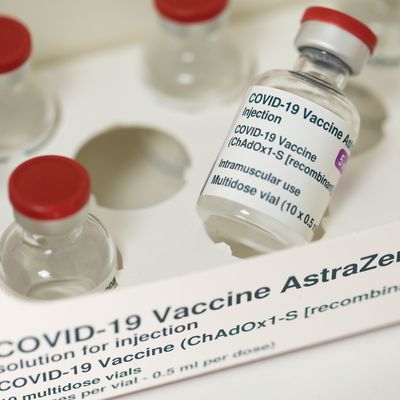
At the end of 2020, the AstraZeneca shot was among the front-runners in the race for a COVID-19 vaccine. It showed promise in clinical trials, provoking a robust immune response suited for protection against the virus. The U.S. ordered 300 million doses, enough to cover 150 million people, and the E.U. initially ordered 80 million doses.
But today, tens of millions of doses are languishing unused in U.S. Deepfreeze warehouses, according to the New York Times. Meanwhile, in many parts of Europe, the vaccine’s rollout has been put on pause over fears it may cause blood clots in people who were given shots.
Though the vaccine is approved in more than 70 countries, it hasn’t been approved in the U.S. due to slow clinical trials required by the Food and Drug Administration. Yet the White House is letting these doses collect warehouse dust as several other countries that have approved the vaccine struggle to obtain it. As such, the drugmaker encouraged the Biden administration to consider requests for doses of its vaccine from overseas, according to the Times, but so far, the Biden administration has rejected these requests. White House COVID-19 response coordinator Jeffrey Zients said, “We have a small inventory of AstraZeneca so, if approved, we can get that inventory out to the American people,” in a press call on Friday. Meaning: Countries shouldn’t expect shipments from the U.S. anytime soon.
The news comes as several countries across Europe clamped down on the rollout of some AstraZeneca batches as a precaution, after reports of blood clotting following vaccinations. On Friday, the World Health Organization said there was no clear evidence of a link between AstraZeneca vaccinations and blood clots. But over the weekend, the flurry of suspensions continued, with Germany, the Netherlands, and Ireland joining the now nine countries temporarily suspending administration of the AstraZeneca vaccine.
“It is most regrettable that countries have stopped vaccination on such ‘precautionary’ grounds: it risks doing real harm to the goal of vaccinating enough people to slow the spread of the virus, and to end the pandemic,” Peter English, a retired British government consultant in communicable disease control, told Reuters.
In response to the suspensions of its vaccine, AstraZeneca said it had carefully reviewed the data on 17 million people who received doses across Europe. It said there was “no evidence of an increased risk” of blood clots in any age group or gender in any country, Reuters reported.
Results from the phase III trial of the AstraZeneca vaccine in the U.S. should arrive in the next few weeks, and the company plans to file for emergency-use authorization shortly thereafter, according to Reuters. The AstraZeneca vaccine, if authorized, would expand the U.S. supply to cover 650 million people, or twice the entire population.
Even without it, the Biden administration has ordered enough doses from Pfizer, Moderna, and Johnson & Johnson to fully vaccinate 500 million people, more than the country’s population. Biden says enough is expected to be delivered by the end of May to cover all eligible adults.





























